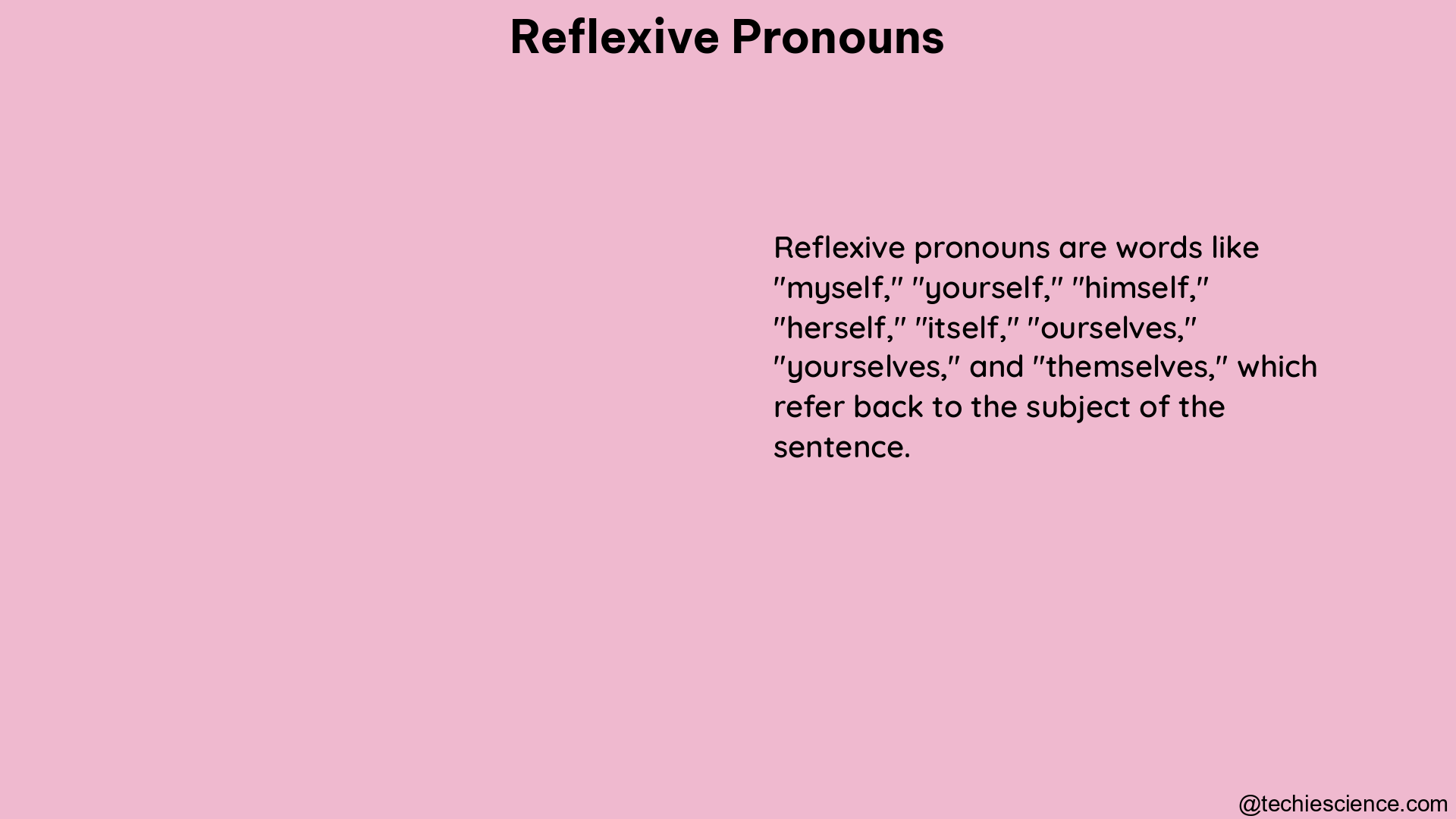Reflexive pronouns are a crucial aspect of English grammar, and understanding their usage and specifications is essential for effective communication. This comprehensive guide will delve into the definition, usage, grammatical specifications, and common errors associated with reflexive pronouns, providing you with a thorough understanding of this essential linguistic concept.
Definition and Usage
A reflexive pronoun is a pronoun that refers to another noun or pronoun within the same sentence. In English, reflexive pronouns end in -self or -selves and refer to a previously named noun or pronoun. They are used when the object of a sentence is the same as the subject, ensuring clarity and avoiding confusion.
Examples of Reflexive Pronouns

Direct Object
Reflexive pronouns are used as direct objects when the object is the same as the subject of the verb.
- “I fell over and hurt myself.”
- “Be careful with that knife. You might cut yourself.”
Indirect Object
Reflexive pronouns are used as indirect objects when the indirect object is the same as the subject of the verb.
- “Would you like to pour yourself a drink?”
- “We’ve brought ourselves something to eat.”
Object of a Preposition
Reflexive pronouns are used as the object of a preposition when the object is the same as the subject of the verb, but not after prepositions of place.
- “They had to cook for themselves.”
- “He was feeling very sorry for himself.”
Intensive Pronouns
Reflexive pronouns can be used intensively to emphasize the person or thing being referred to.
- “Kendal itself is quite a small town.”
- “I closed the store on Saturday myself.”
Grammatical Specification
Binding
In generative grammar, a reflexive pronoun is an anaphor that must be bound by its antecedent. This means that the reflexive pronoun must refer back to a noun or pronoun that has already been mentioned in the sentence.
Number
Reflexive pronouns can be singular or plural, depending on the subject they refer to. For example, “I” (singular) would use the reflexive pronoun “myself,” while “we” (plural) would use the reflexive pronoun “ourselves.”
Emphasis
Reflexive pronouns can be used to add emphasis to a sentence, indicating that the action is performed by the subject itself. This can be seen in examples like “I closed the store on Saturday myself.”
Common Errors with Reflexive Pronouns
Incorrect Use in Compound Subjects or Objects
Reflexive pronouns should not be used as part of a compound subject or object. For example, “My brother and myself went to the park” is incorrect, and should be “My brother and I went to the park.”
Incorrect Use as Objects
Reflexive pronouns should not be used as objects when the subject and object are not the same. For instance, “She helped myself with the task” is incorrect, and should be “She helped me with the task.”
Reference Links

The lambdageeks.com Core SME Team is a group of experienced subject matter experts from diverse scientific and technical fields including Physics, Chemistry, Technology,Electronics & Electrical Engineering, Automotive, Mechanical Engineering. Our team collaborates to create high-quality, well-researched articles on a wide range of science and technology topics for the lambdageeks.com website.
All Our Senior SME are having more than 7 Years of experience in the respective fields . They are either Working Industry Professionals or assocaited With different Universities. Refer Our Authors Page to get to know About our Core SMEs.